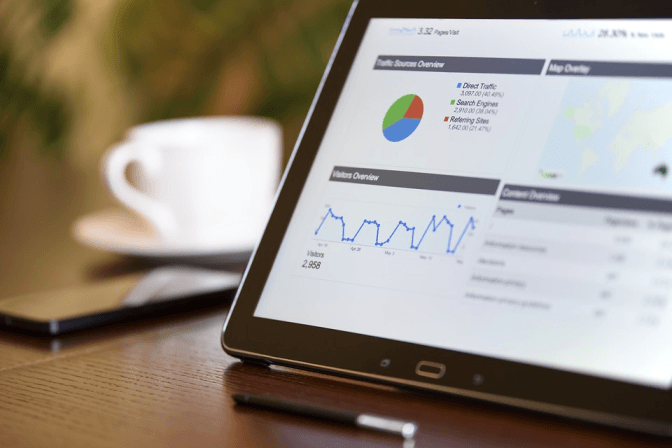 It’s safe to say that digital marketing is of vital importance for the success of any business. It can be as simple as email interactions, social media marketing, third-party marketing, or anything in between. Whatever the marketing strategy, it’s essential to gather valuable information and generate quality leads.
It’s safe to say that digital marketing is of vital importance for the success of any business. It can be as simple as email interactions, social media marketing, third-party marketing, or anything in between. Whatever the marketing strategy, it’s essential to gather valuable information and generate quality leads.
The problem is that the valuable information gathered is often sensitive, and keeping it secure should be a top priority. The best way to ensure that this data remains safe is to invest in firewalls, buy a VPN, and provide backup and recovery in case of a breach.
In this article, we attempt to explain the importance of focusing on cybersecurity in digital marketing, and the best ways to mitigate the risks of data breaches and other cyber attacks.
The Importance of Cybersecurity in Digital Marketing
 Cybersecurity concerns are often left to IT departments. However, many digital marketing campaigns can leave the door open to cyber-attacks, making cybersecurity their concern as well.
Cybersecurity concerns are often left to IT departments. However, many digital marketing campaigns can leave the door open to cyber-attacks, making cybersecurity their concern as well.
Content marketing, for example, is a popular marketing method. Many rely on CMSs such as WordPress for managing content marketing. And this is why such sites often get attacked. They are then used for malware distribution, data gathering, and more.
The same could be said for email marketing. This traditional marketing method can become a target for phishing attacks which can lead to the company’s email account getting blacklisted and blocked.
Any type of digital marketing campaign brings certain security risks with it, making cybersecurity a top priority.
What’s at Risk?
 Spam and malware aren’t the only issues since hackers can gather financial information, clients’ credit card information, and other sensitive data.
Spam and malware aren’t the only issues since hackers can gather financial information, clients’ credit card information, and other sensitive data.
Over 78% of people would stop engaging with a brand online after a security breach. That’s 78% of wasted marketing efforts.
Top-notch cybersecurity and data privacy protocols instill clients’ trust in a brand. Going hand in hand with the latest security practices allows marketers to proactively secure customer data and company infrastructure.
Use a VPN
 The sensitive nature of the information marketers continually access asks for the latest security practices to be followed. A VPN (Virtual Private Network), for example, has been the buzzword of the past year, and for a good reason.
The sensitive nature of the information marketers continually access asks for the latest security practices to be followed. A VPN (Virtual Private Network), for example, has been the buzzword of the past year, and for a good reason.
Many would buy a VPN (you can do it here) for secure internet browsing without being fully aware of many other functions it can fulfill. This tool is invaluable to digital marketers for many reasons.
Security
Chiefly, VPN enhances cybersecurity by encrypting the data in transit and allowing for safe browsing. The way it achieves this is by creating a safe and hidden connection between a device and network.
Even if the connection is found by an outsider, the encryption deems the connection unreadable, restricting access to anyone but the primary user.
Remote Work
The number of remote workers is on the rise, and VPNs have enabled digital marketers to join this workforce.
Accessing important files outside the office brings many security risks with it. However, with encryption provided by VPNs, any public network can become as safe as a business’s private one.
Digital marketers can access all the necessary information and continue working wherever they are. When a VPN is used, no one can monitor a device’s activity. This makes it invisible to Internet Service Provider (ISP), the competition, and hackers alike.
Competition Analysis
One of the primary tasks of digital marketers is competition analysis. Staying ahead of the competition means keeping a close eye on market trends and competitors’ activity.
With the use of a Virtual Private Network, digital marketers can anonymously inspect a competitor’s website and gather information about their activity.
It also allows for a company’s website to be accurately compared to others in the international market. Marketers can analyze genuine search engine results pages, helping them plan more effective marketing strategies.
Firewalls and Backup
 While VPNs provide an encrypted connection and offer security in terms of anonymity, a reliable firewall is a must. The difference between VPNs and firewalls is that the former is a proactive cybersecurity measure, while the latter is a reactive one.
While VPNs provide an encrypted connection and offer security in terms of anonymity, a reliable firewall is a must. The difference between VPNs and firewalls is that the former is a proactive cybersecurity measure, while the latter is a reactive one.
Firewalls protect the data when an intruder is noticed, and take steps to eliminate them. While such cases primarily are the IT department’s concern, marketers must ensure all the devices they use to access the data are properly secured.
When push comes to shove, a proper backup and recovery process is essential. Cloud technology proves to be an affordable and safe solution for storing sensitive client information.
Loss of data can have a significant effect on the overall business, which is why everyone must take proper steps to ensure the best security practices.
VPNs and firewalls will ensure that all the data is protected, and proper backup will minimize losses in case of a breach. For the sake of customer privacy and business infrastructure, digital marketing and cybersecurity must go hand in hand.





